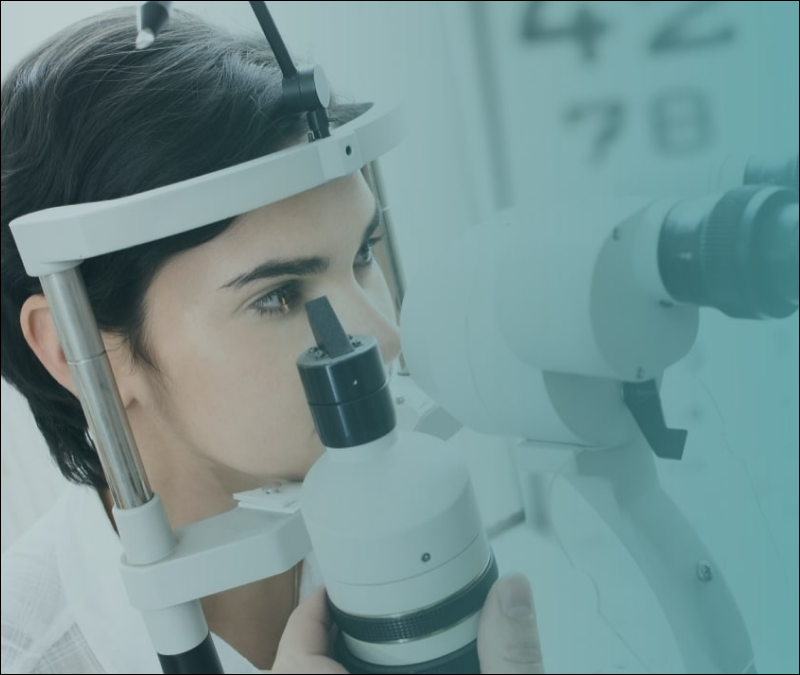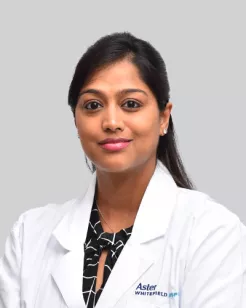The department of ophthalmology at Aster Whitefield provides cutting-edge treatments and solutions for a wide range of eye-related disorders for patients of all age groups. Equipped with world-class technologies and therapeutic equipment, the facility provides treatment for retinal diseases, glaucoma, cataracts, corneal diseases, pediatric ophthalmic diseases, and other disorders. Our team of expert ophthalmologists have specialized in numerous subspecialties and uses the latest diagnostic, medical and surgical therapies to provide evidence-based, state-of-the-art treatment to patients.
At Aster Whitefield, we aim to provide our patients with the best care and finesse in treatment to ease any issues that they may face in their eyes. The department conducts routine and detailed eye examinations with slit lamp biomicroscopy, non-contact tonometer, auto refractometer, colour vision assessment, Gonioscopy, Dry eye evaluation and Dilated fundoscopy. In Dilated Fundoscopy we routinely examine for conditions like Diabetic Retinopathy, Myopic Degeneration, Glaucoma, ARMD etc.
Services Offered
- Routine Eye Examination
- Dilated Refraction and Fundoscopy
- Dry Eye Evaluation
- Check up for Intra Occular Pressure
- Cyclorefraction for Children
Treatments Offered
- Allergic Conjunctivitis
- Foreign Body Removal
- Bacterial / Viral Conjunctivitis
- Keratitis
- Dry eyes
- Blepharitis
- Computer Vision Syndrome
- Hordeolum
Our Doctors
We have some of the best specialists from around the world, they bring years of experience and offer evidence-based treatment to ensure the best care for you.





